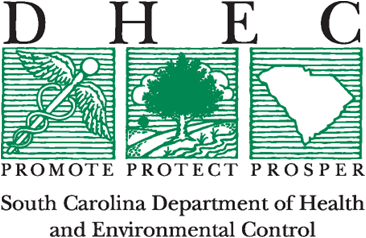For decades radioactive pollution has been leaking into groundwater and a creek from a landfill for nuclear waste near Barnwell, South Carolina. The landfill opened in 1971 and is currently managed by the Chem-Nuclear company.
Chem-Nuclear is a subsidiary of Energy Solutions which is located in Utah. Energy Solutions is also the manger of a low-level nuclear waste repository in Utah. Much of the waste that goes to Utah is lower-level than the waste destined for the landfill in S.C.
The two hundred and thirty-five acre Barnwell site is one of only a few low-level nuclear waste repositories in the U.S. Once the site took in three quarters of the low-level nuclear waste generated in the U.S. Now it only takes waste from South Carolina, Connecticut and New Jersey. The types of waste that are sent to the landfill includes low-level waste such as lightly contaminated hospital gloves and gowns, but also includes more radioactive refuse, such as nuclear reactor parts.
Legal battles over the site have been raging for the past thirteen years. In 2015, the state Court of Appeals issued a ruling saying that Chem-Nuclear, who manages the site, had not done much to keep the rain water out of the trenches that contained the waste. A state regulation states that the company is supposed to prevent rain water from flowing into the pits of waste.
A representative of the Sierra Club told the Court in new hearing today that the state Department of Health and Environmental Control (DHEC) had done nothing to make Chem-Nuclear adhere to the law. They recommended to the Court that it order Chem-Nuclear to employ better disposal practices to prevent rain water from falling into the open pits where the waste was buried. This might include construction of roofs over the burial pits or the construction of water-tight vaults made of concrete to hold the waste.
A representative of Chem-Nuclear told the state Suprement Court that the law actual said that the company had to “manage the water” but not necessarily to keep all rainwater out of the waste trenches. It could take months for the Court to decide the case. If the Court takes the side of the environmentalists who filed the complaint, it could require that Chem-Nuclear makes expensive changes at the landfill.
The primary concern about the landfill is that radioactive tritium is leaking out of the waste filled trenches. Tritium can pose a threat to the health of people who are exposed to it. The pollution is leaking into the groundwater below the site and is also flowing into a creek that is a tributary of the Savannah River.
At least a quarter of the monitoring wells around the landfill have measured tritium levels that are at or above the level allowed by the federal government safe drinking water standard according to data collected by the DHEC. The DHEC says that the tritium pollution levels are stable or decreasing. Some citizens are concerned by the DHEC claims that there is no danger to public health.
